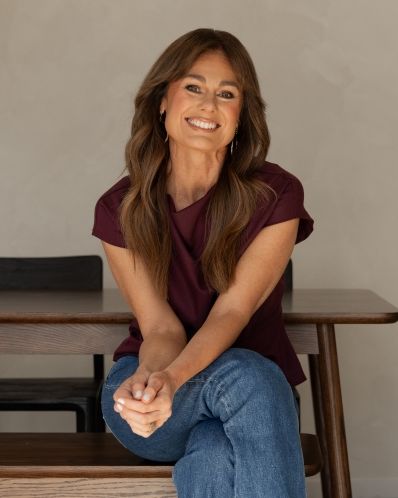Why social connection matters to your health
When we’re socially connected, our mental health is better for it, but the benefits extend beyond this to brain health and surprising aspects of physical health.
Sponsored Story

Key points
- Loneliness is very common, and nothing to be ashamed of.
- We are hard-wired to connect to others. It supports mental health, but also brain health.
- Social connection can strengthen your immune response and protect against heart disease.
- Even small efforts to connect to others reaps health benefits.
It might sound like a contradiction, but if you’re feeling lonely, you’re not alone.
One in four Australians experience persistent loneliness, indicating that its associated impact on happiness is something many of us can relate to.
The good news is that health benefits can be realised across the lifespan, so it’s never too late to build a more connected life.
Causes of loneliness vary, but many of the common contributors are external to you.
Societal factors that can lead to loneliness include dispersed family members, cultural disconnection, a reduced sense of community, and increased use of technology.
Life events that can lead to loneliness include loss of a loved one, relationship breakdown, moving to a new town, retirement, trauma, and chronic health conditions.
The bottom line is, feeling lonely is not something to be ashamed of. It is feedback that you aren’t getting enough of a basic human need – social connection.
Learn more
For a deeper dive into the neuroscience of social connectedness, delivered with compassion, watch a recording of our webinar ‘Social connectedness: Why it matters for your brain and mental wellbeing’.
Social connectedness is more than the absence of loneliness. It also encompasses a sense of belonging within a social network. This could be family, friendships, shared interest groups, work, or neighbourhoods, for example.
When we feel connected to others, we receive emotional benefits, such as a lower likelihood of depression.
Social connectedness is also linked to better regulation of the ‘fight/flight’ stress response.
Other health benefits are perhaps more surprising; social connectedness can strengthen your immune response and reduce your risk of heart disease. This is likely due to loneliness being linked to inflammation and stress on the body.
There is another aspect of our need for social connectedness that equalises us as humans – it’s beneficial no matter our age.
The famous Harvard ‘Happiness Study’ has tracked adults since 1938 to uncover what makes a healthy, happy life. At age 50, participants’ satisfaction with their personal relationships was the biggest predictor of health at 80 (more important than cholesterol!).
Social contact is a protective factor against dementia, and enhances cognitive reserve – the brain’s resilience to the effects of ageing.
Our Healthy Brain Ageing research team have found that impacts of lifestyle factors, including lower social connectedness, show up in the brain well before any signs of dementia emerge. This includes reduced white matter volume, imbalances in electrical activity, and concentrations of neurochemicals.
Each person differs in the amount of social connection they need, so there is no prescription for what is right for you. However, feeling lonely is a signal that you may need more meaningful social connection.
For many people, reducing feelings of loneliness can take time. It might be helpful to know, however, that your efforts to connect with others don’t have to be big to benefit your health.
Some suggestions are:
- Walk your neighbourhood, offering a smile or wave to people you encounter
- Consider welcoming a pet into your home
- Patronise your neighbourhood’s shops and cafes, and show their staff your appreciation for their service
- Join a group with a common interest, online or in-person
- Follow council websites and community social media pages to find free activities, classes or community events
- Dedicate extra time, however small, to people you care about – it can be as simple as sending a text or voice message
- If you’re short on time, turn existing commitments into social opportunities e.g. exercising with a friend or colleague
- Notice who else may be experiencing loneliness, and offer them a friendly conversation.
Most of all, be kind to yourself. Feeling lonely is not a fault. It is an experience all humans are susceptible to.

Dr Christina Driver
Lecturer in Mental Health and Neuroscience

Dr Thomas Pace
Associate Lecturer in Mental Health and Neuroscience
Thompson Institute, University of Sunshine Coast

Kali Gray
Community Health Educator and accredited practising dietitian
Thompson Institute, University of Sunshine Coast

Subscribe to Health Matters today
As we age, our health really does matter – and it’s important to stay up to date with the latest advice and information on health and well-being.
Subscribe to our informative digital newsletter Health Matters, where you’ll receive quality articles, healthy recipes and the latest health information relevant to older Australians. Each edition features contributions from Dr Libby (PhD) – Internationally acclaimed nutritional biochemist, best-selling author, and international speaker – who shares her insights on nutrition, energy, and healthy living. From practical tips to inspiring ideas, Health Matters covers everything you need to know to create and maintain a healthy lifestyle in your later years.
Dr Libby has a Bachelor of Health Science (Nutrition and Dietetics) (Hons), a PhD in Biochemistry, and 25 years of clinical experience.
Disclaimer: This article is for informational purposes only and should not be considered medical advice. Consult a healthcare professional about any health concerns or before making any changes to your medication, diet, or exercise routine.





